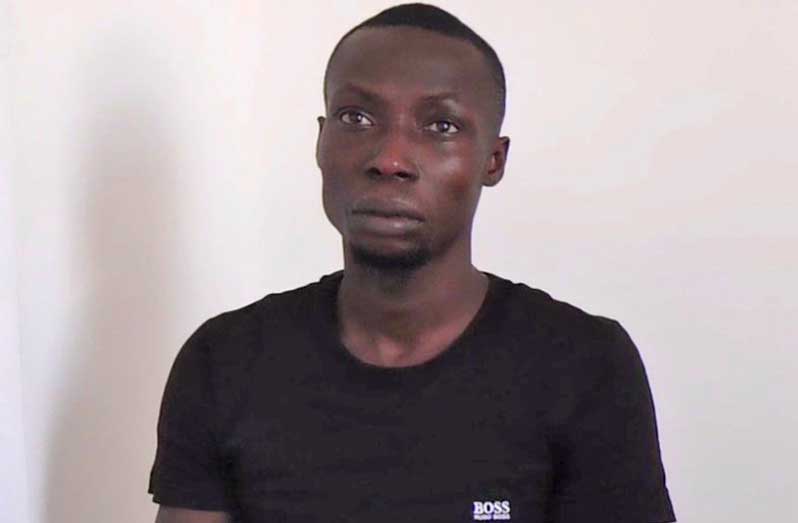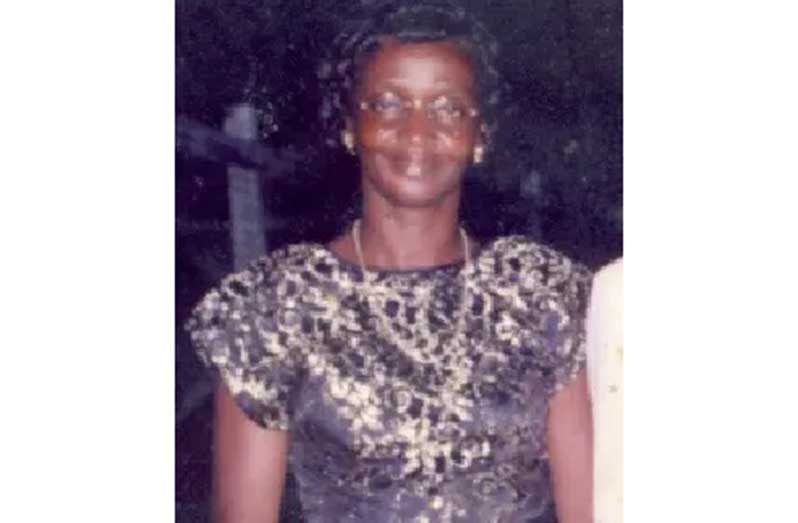THE Court of Appeal (CoA) has significantly reduced the prison sentences of two men previously convicted for the murder of 56-year-old Colleen Forrester.
Forrester’s decomposed body was discovered in a septic tank at her residence on William Street, Campbellville, Georgetown, in early 2008.

The men, Anthony Hope, Forrester’s nephew, and Ralph Tyndall, faced lengthy prison terms following their conviction in 2015 for this brutal crime.
Hope was originally sentenced to 62 years in prison, while Tyndall received a 55-year sentence. The trial, presided over by Judge Roxane George, SC (now Chief Justice), determined that Hope would be eligible for parole after serving 40 years, and Tyndall after 25 years.
The third accused, Kevin O’Neil, was acquitted after the trial judge upheld the no-case submission made by his lawyer.
Following their convictions, Hope and Tyndall appealed their sentences and the jury’s verdicts, citing a biased summation by the trial judge in favour of the prosecution; inadequacies in the presentation of their defences to the jury by the judge; misdirection concerning the law on circumstantial evidence and that their conviction was against the weight of the evidence.
They also contended that the sentences imposed were manifestly excessive, punitive and did not take into account their potential for rehabilitation.
In a unanimous ruling delivered last Wednesday, Chancellor of the Judiciary (ag) Justice Yonette Cummings-Edwards stated that the Court of Appeal found no merit in the men’s arguments against their convictions, thereby dismissing that aspect of their appeal.
“Taken into account all of the grounds counsel submitted, we do not find any merit in the grounds of appeal, save and except for the ground of appeal in relation to the issue of sentence,” Cummings-Edwards said. She said a properly directed jury would have convicted the appellants based on all the admissible evidence presented during their trial.
However, their appeal regarding the length of their sentences was allowed. The court emphasised the importance of aligning sentencing with established guidelines set forth by the country’s highest court, the Trinidad- based Caribbean Court of Justice (CCJ).
In re-sentencing the convicts, the appellate court took into account several factors, including the goals of sentencing, such as retribution, deterrence, and rehabilitation.
Consequently, Hope’s sentence was reduced to 37 years, while Tyndall’s was cut to 32 years, with both men receiving credit for time already served in pre-trial detention.
On the issue of parole eligibility, the court referenced the standards established by the CCJ in Small and Gopaul v the Director of Public Prosecutions of Guyana, indicating a need for consistency in sentencing practices.

In this criminal appeal, the CCJ allowed the appeal of Jarvis Small and allowed in part the appeal of Bibi Gopaul against the sentence imposed by the Court of Appeal.
Her appeal against conviction was dismissed. Gopaul was convicted by a jury for the gruesome 2010 murder of her 16-year-old daughter, Neesa Gopaul.
The regional court substituted her initial 102 years’ prison sentence with a term of 30 years’ imprisonment with no eligibility for parole before the expiration of 15 years, with credit for time spent in pre-trial detention.
During the trial, evidence revealed that Hope and Tyndall brutally beat Forrester before wrapping her body in sheets and disposing of it in the septic tank.
The medical examination concluded that Forrester died from subdural haemorrhage due to blunt cranial trauma, compounded by compression to the neck.
The prosecution relied on circumstantial evidence and statements from witnesses, including her grand-daughter, who testified about finding the house locked and observing blood stains.
In addition to the Chancellor, Justices of Appeal Dawn Gregory-Barnes and Rishi Persaud also considered this case. Hope was represented by attorney Melvin Duke, while attorneys Ronald Daniels and Melvin Duke appeared on behalf of Tyndall. The state’s interests were defended by Assistant Director of Public Prosecutions Diana Kaulesar-O’Brien.



.jpg)








